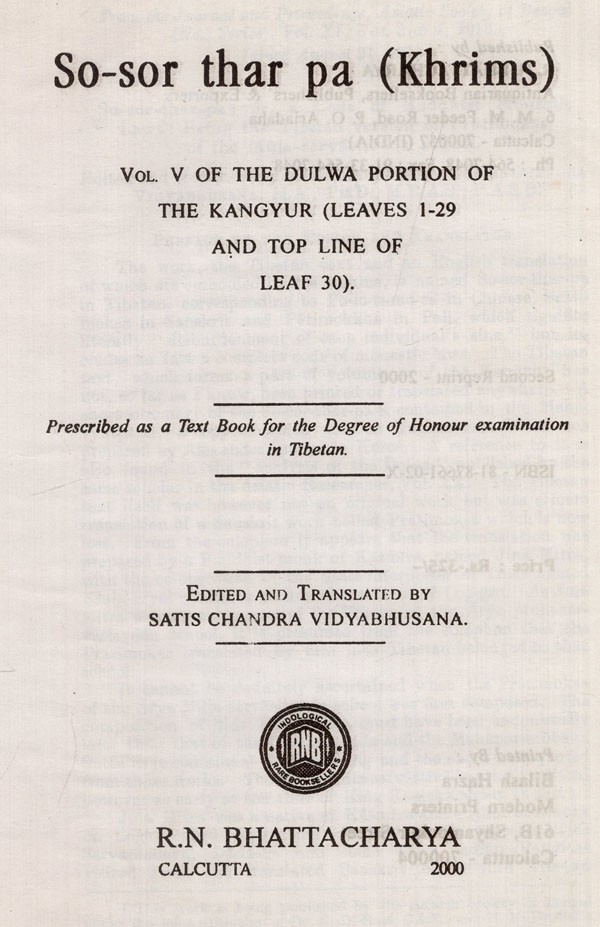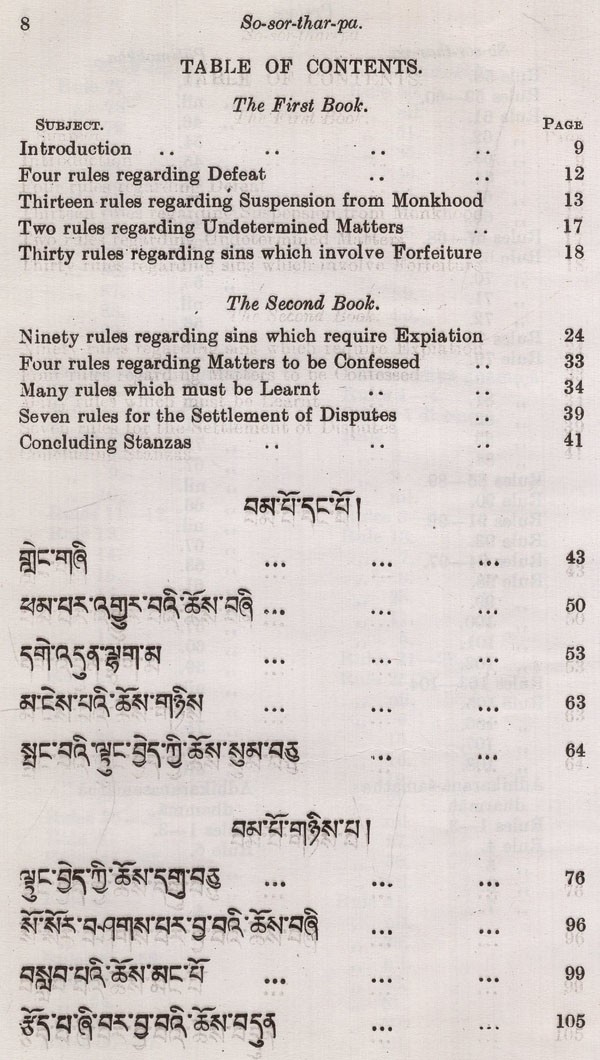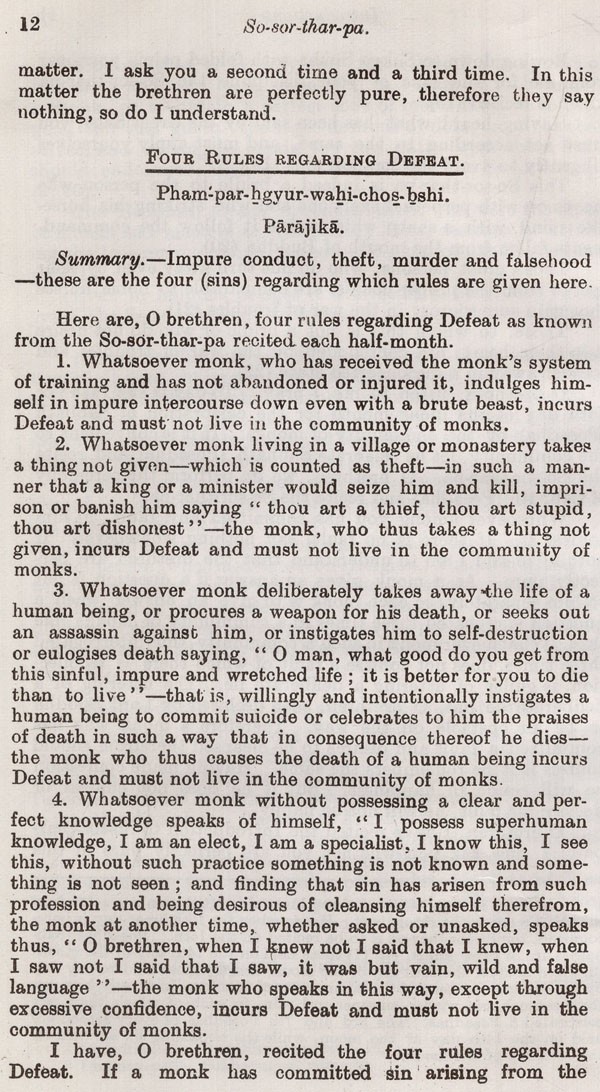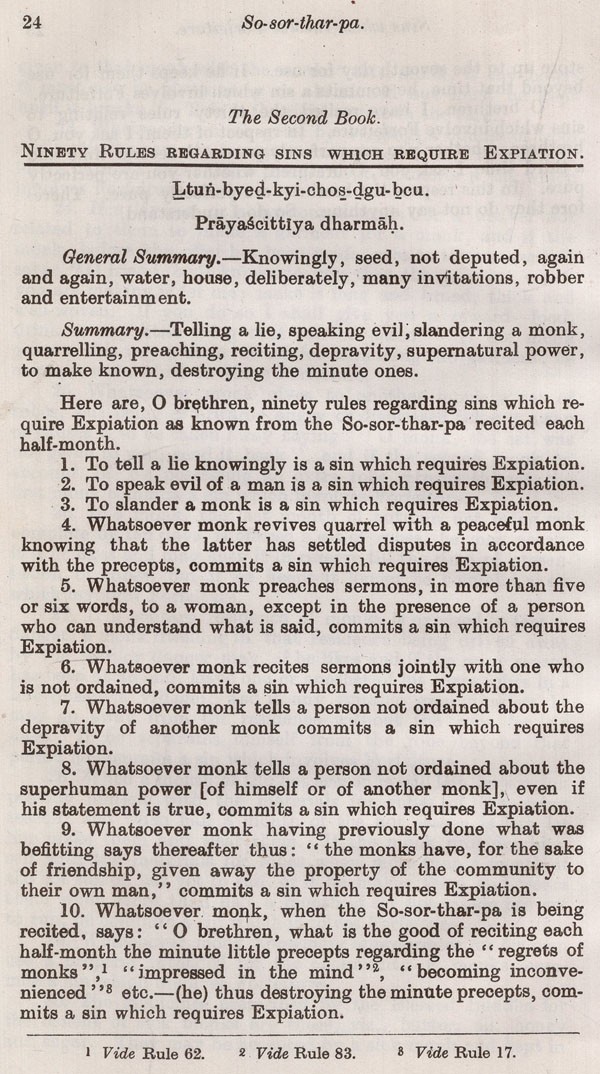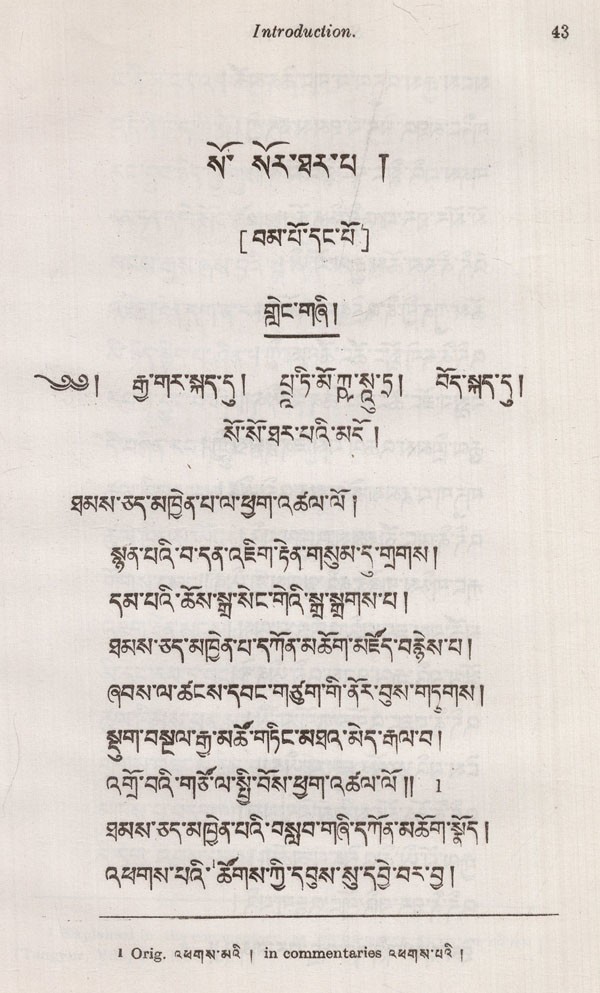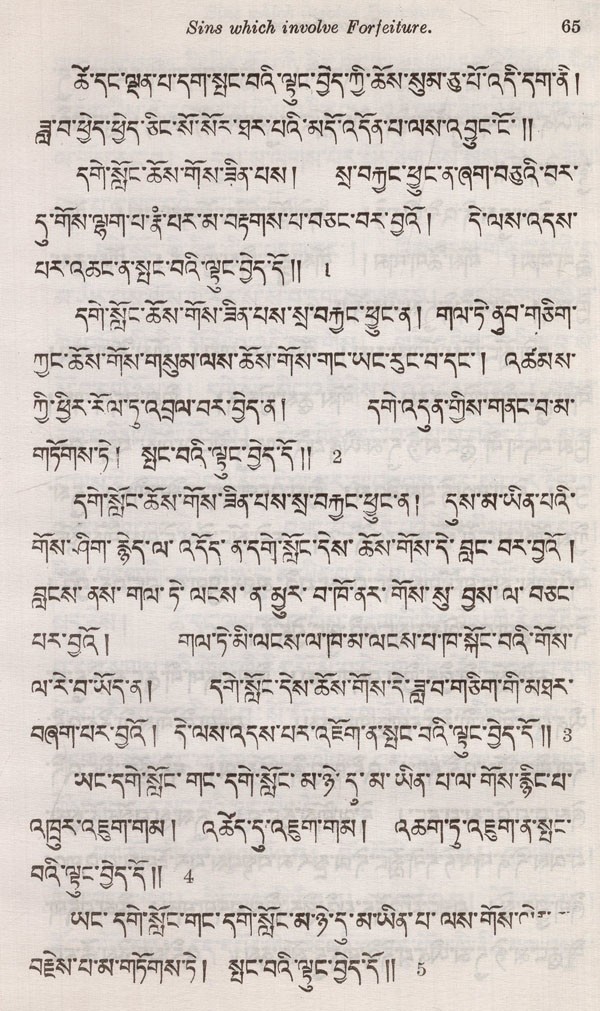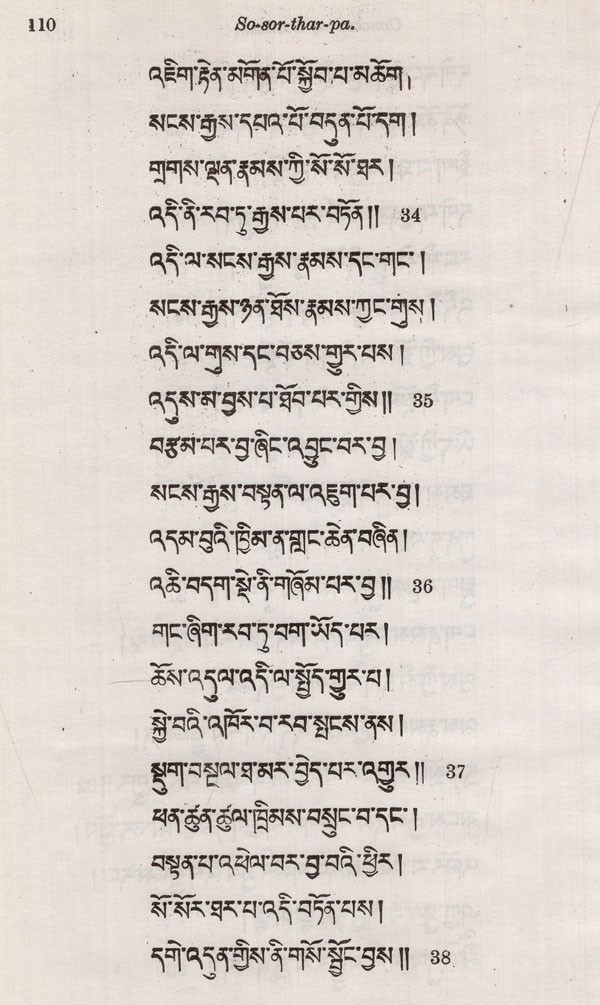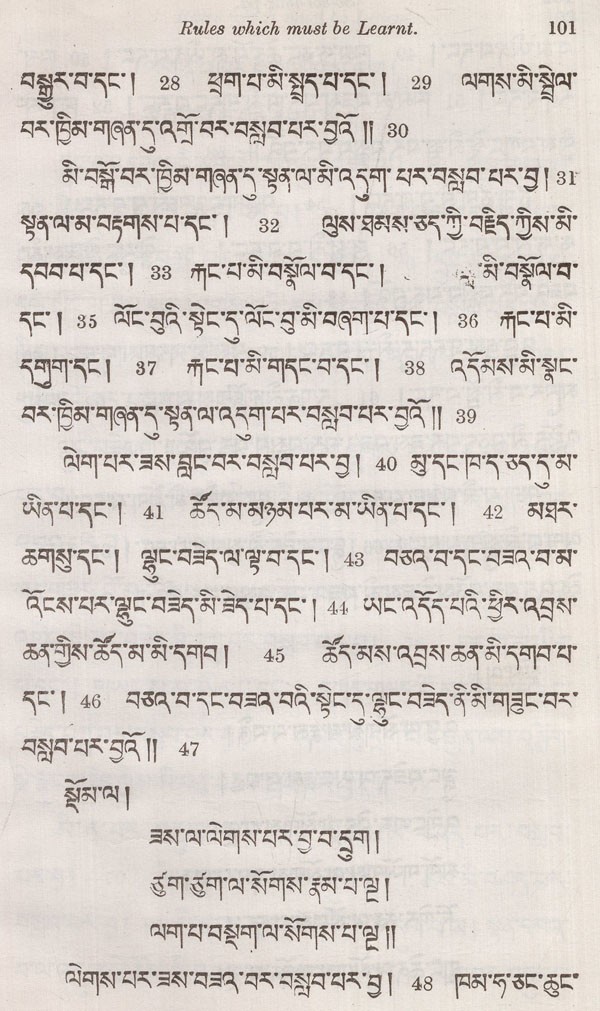
So-Sor-Thar-Pa (Khrims)- An Old and Rare Book
Book Specification
| Item Code: | UAW456 |
| Author: | Satis Chandra Vidyabhusana |
| Publisher: | R.N. Bhattacharya, Kolkata |
| Language: | Tibetan and English |
| Edition: | 2000 |
| ISBN: | 818766102X |
| Pages: | 114 |
| Cover: | HARDCOVER |
| Other Details | 9.50 X 6.50 inch |
| Weight | 300 gm |
Book Description
The work, the Tibetan text and an English translation of which are embodied in this volume, is named So-sor-thar-pa in Tibetan, corresponding to Po-lo-ti-mo-ca in Chinese, Präti moksa in Sanskrit and Patimokkha in Pali, which signifies literally "disburdenment of each individual's sins," but in cludes in fact a complete code of monastic laws. The Tibetan text, which forms a part of volume ca of the Kangyur, has not, so far as I know, been printed or translated anywhere. A short summary of the So-sor-thar-pa is contained in the Mahavyutpatti, a copy of which with an English translation was prepared by Alexander Csoma de Koros. A reference to it is also found in the "analysis of the Dulva" published by the same scholar in the Asiatic Researches, Vol. XX. The Tibetan text itself was however not an original work but was a mere translation of a Sanskrit work called Pratimoksa which is now lost. From the colophon it appears that the translation was prepared by a Buddhist monk of Kasmira, named Jina Mitra, with the co-operation of the State-interpreter of Tibet named Kluhi-rgyal-mtshan, a native of the town of Cog-gru. As Jina Mitra was a great master of the Vinaya of the Arya Müla-sar västivada school, it is presumed from the colophon that the Pratimoksa translated by him into Tibetan belonged to that school.
Many of the Greek literary works were translated from the Latin versions into European languages in the past. It is still the case even now where many texts written in different languages of the world are being translated from those translated into English. In these cases, the filter language is English. This is specially the case in many of the developing literatures in north-east India. Whether a text is translated from the source language or through the filter language, equivalence is usually what the translator aims for. Equivalence is obtained when an element of the source text is rendered by a target text element deemed the most straightforward counterpart available e.g. eat, sleep, walk etc. Equivalence is rarely or never found to obtain between SL. and TL texts for long, continuous stretches. Nida, in particular, discusses equivalence in terms of dynamic and formal equivalence. Dynamic equivalence also known as functional equivalence attempts to convey the thought expressed in a source text (if necessary at the expense of literalness, original word order etc.).
Obeisance to the Omniscient One. I bow down my head to the Foremost of Beings who was a flag of glory renowned in the three worlds, who proclaimed in a lion's roar the message of the Sacred Faith, who obtained the precious treasure of omniscience, whose feet were touched by the crest-gems of Brahma and Indra and who crossed the bottomless and boundless ocean of miseries (1).
The So-sor-thar-pa is the basis of training in omniscience, it is a casket of jewels kept apart in the community of monks, it is a vast lake filled with the rules of Buddhistic discipline, and it is the essence of all things existing in the fathomless and limitless universe (2).
It is the great leader of all holy doctrines taught by the Lord of Faith; and it is the emporium of all articles of study for the community of monks who are comparable to traders(3).
It is the medicine for curing the maladies of those who are distressed through the transgression of moral laws; and it is the ironwhip for young men who are deluded by their age (4).
It is the means of crossing the wide ocean of rotatory existence, and it is the firm embankment and a bridge to those who move towards the good spheres of life (5). It is the way which leads to the conquest of troubles, it is an excellent guide to the king, and it exists as a ladder for entering the city of emancipation (6).
"When I enter Nirvana the So-sor-thar-pa will be your teacher." Remembering those words you should, O commu nity of monks, assemble together to recite it with reverence due to Buddha himself. It is the very name of Buddha-so rare in all the worlds (7).
It is very difficult to acquire birth as man, still very rare it is to be a monk and rarer yet is the monk's perfect code of moral laws; and though the code of laws may be absolutely pure, it is very difficult to get a good spiritual guide (8).
**Contents and Sample Pages**
